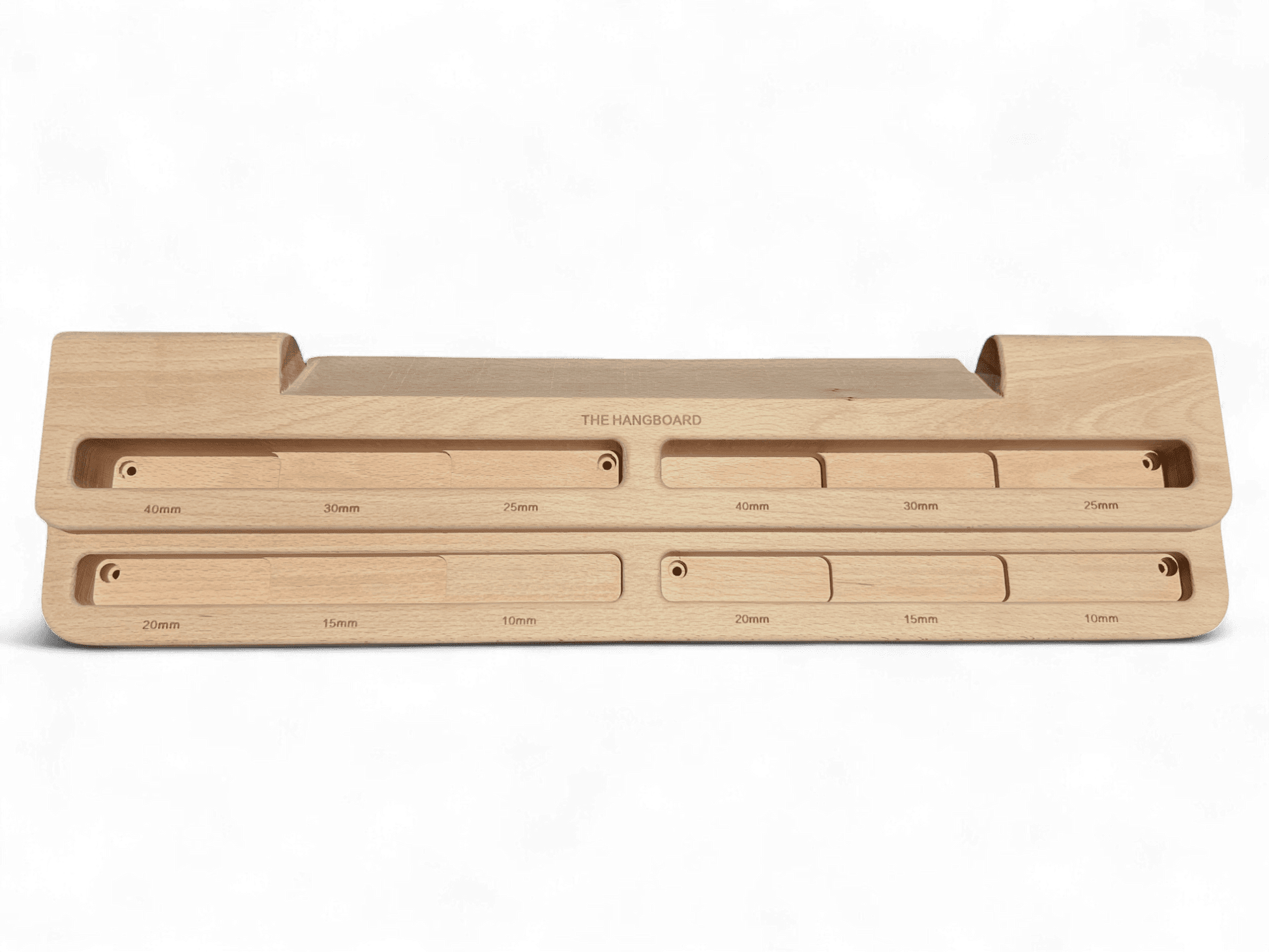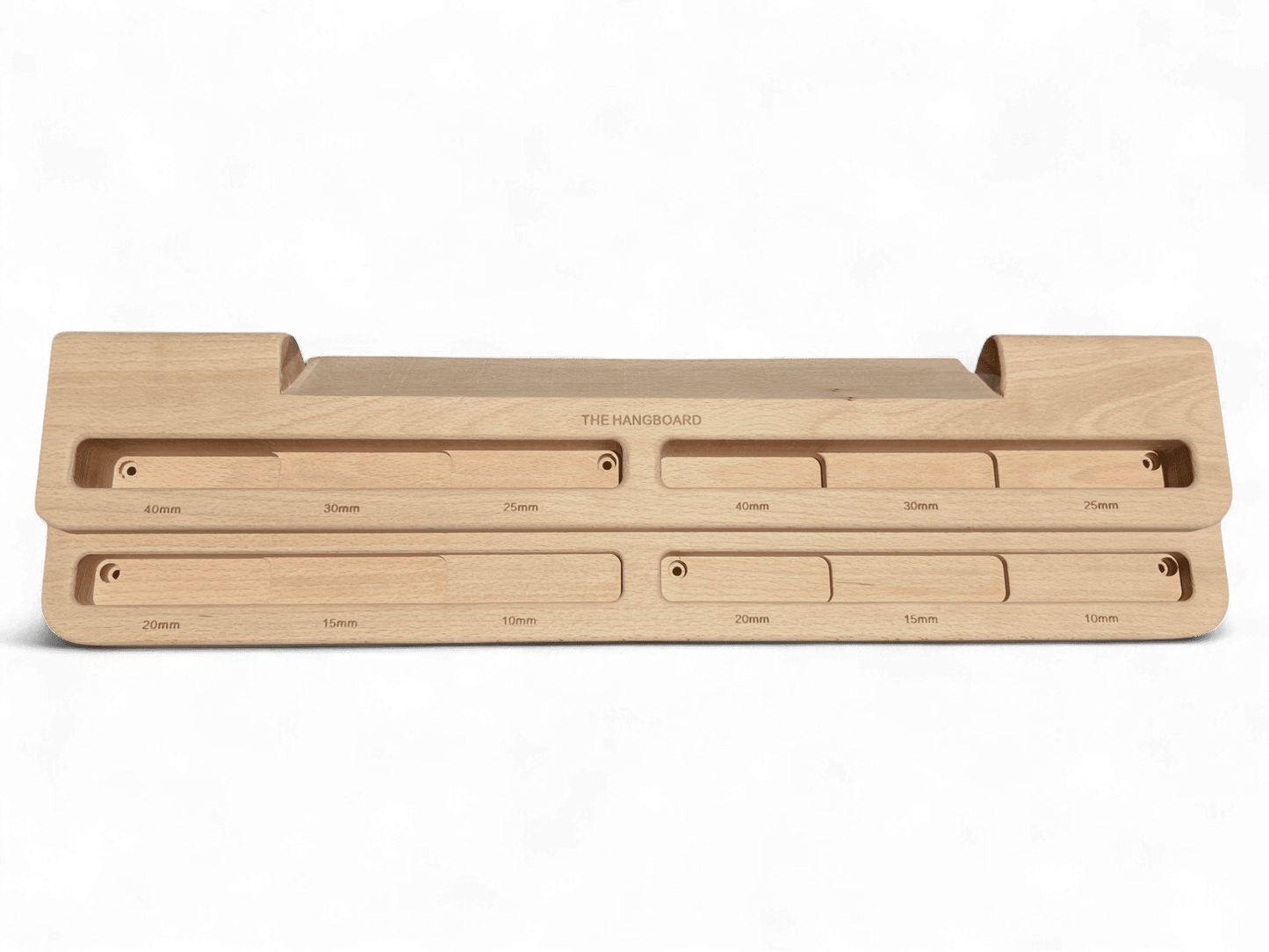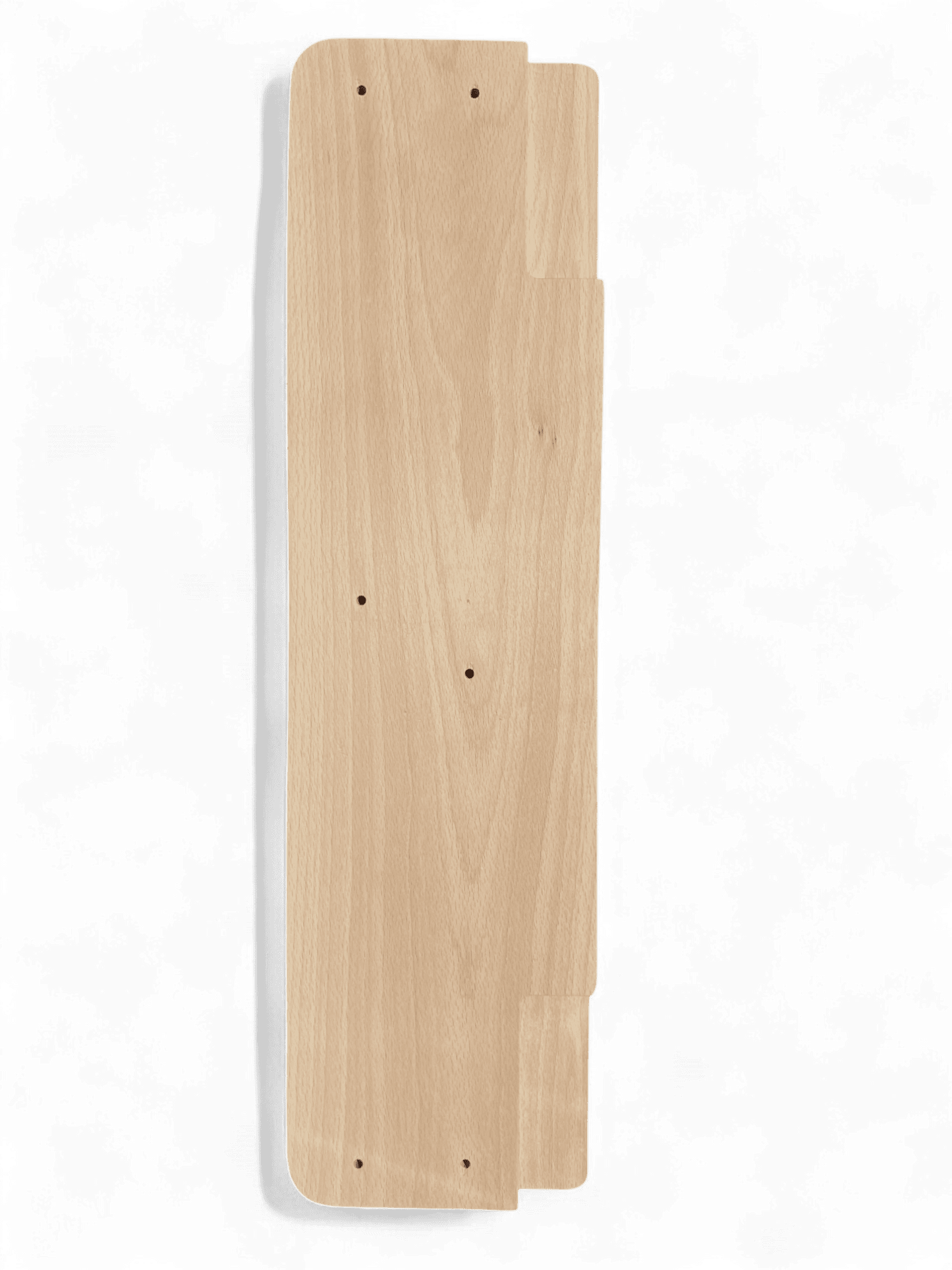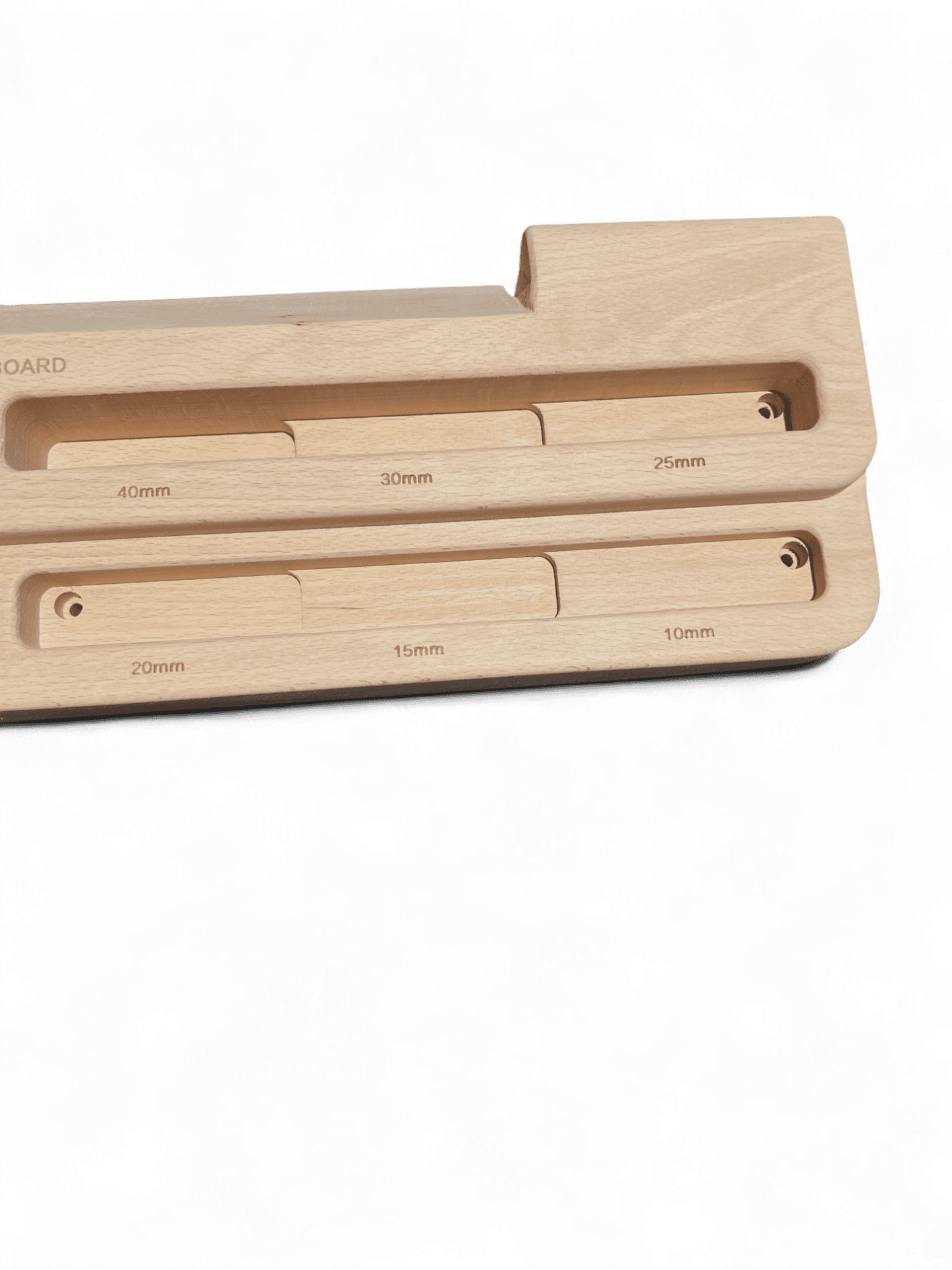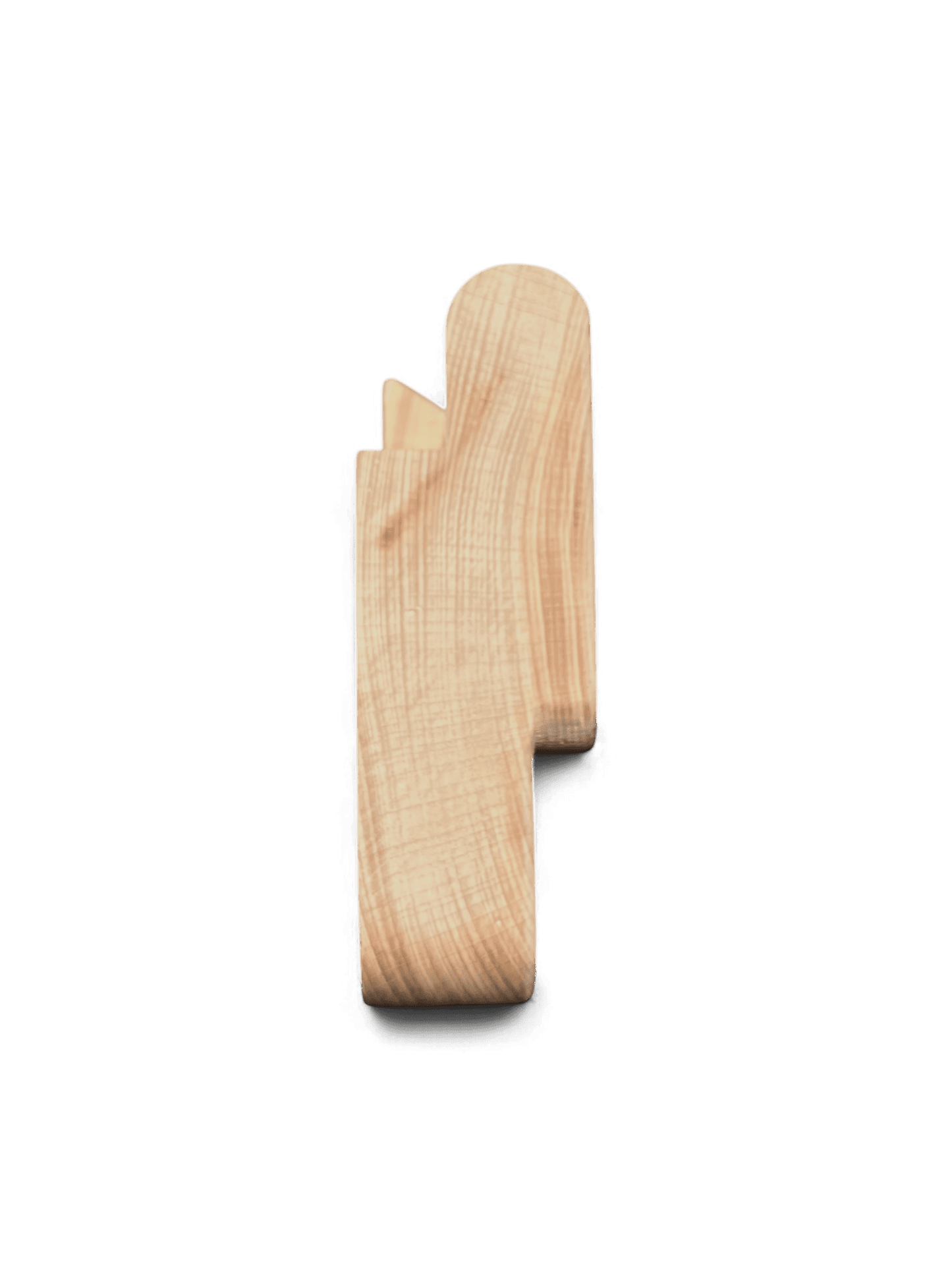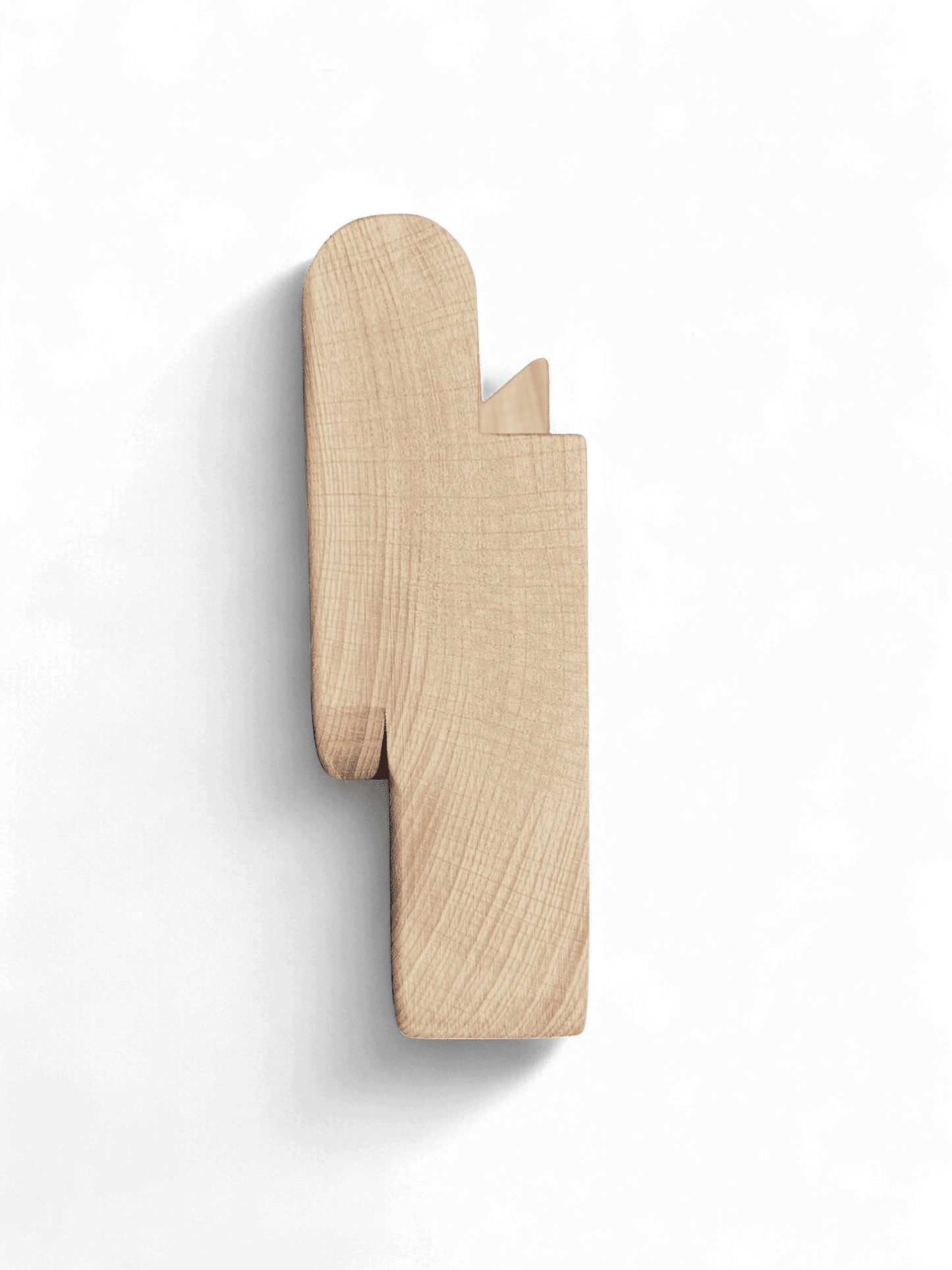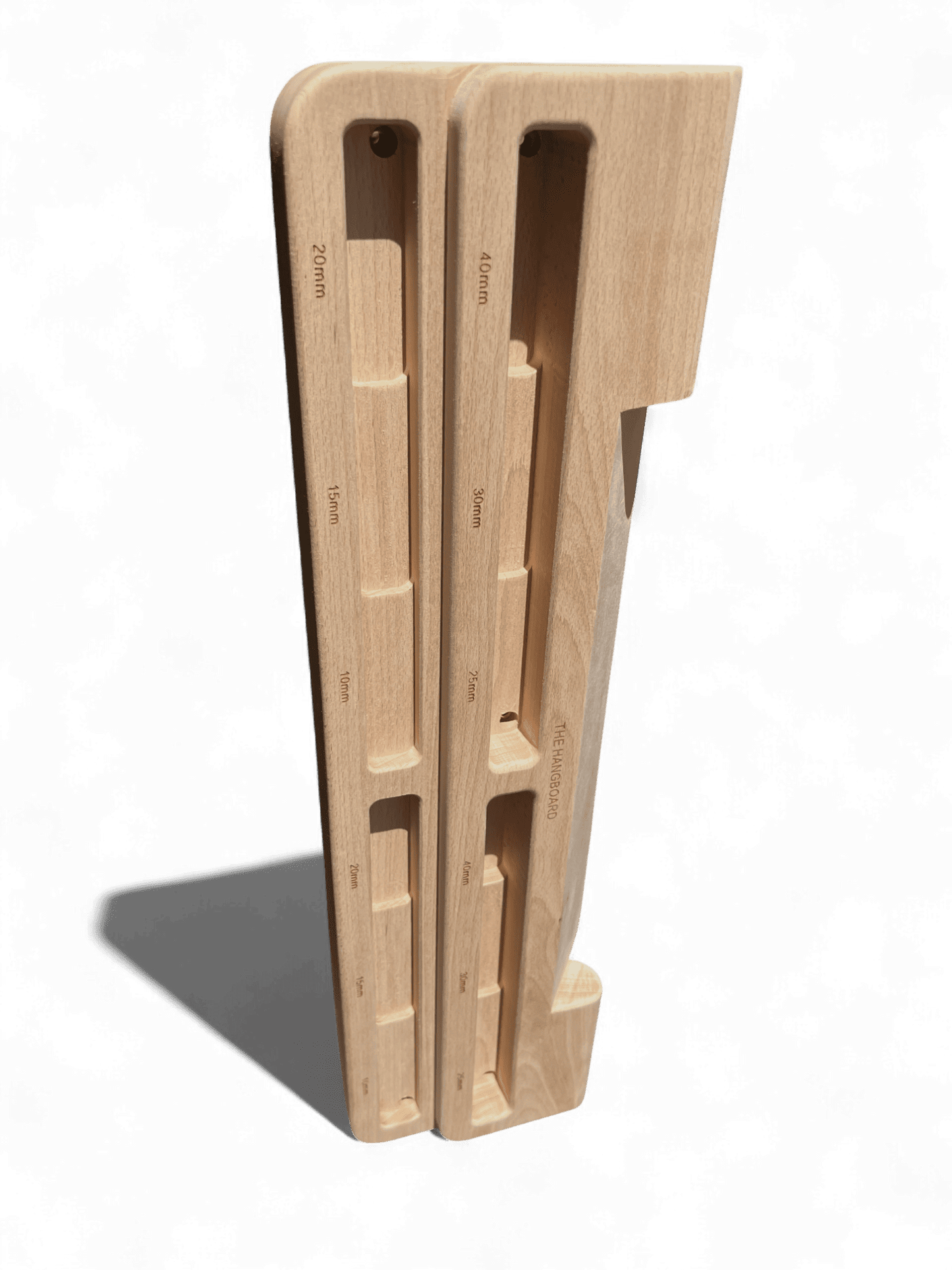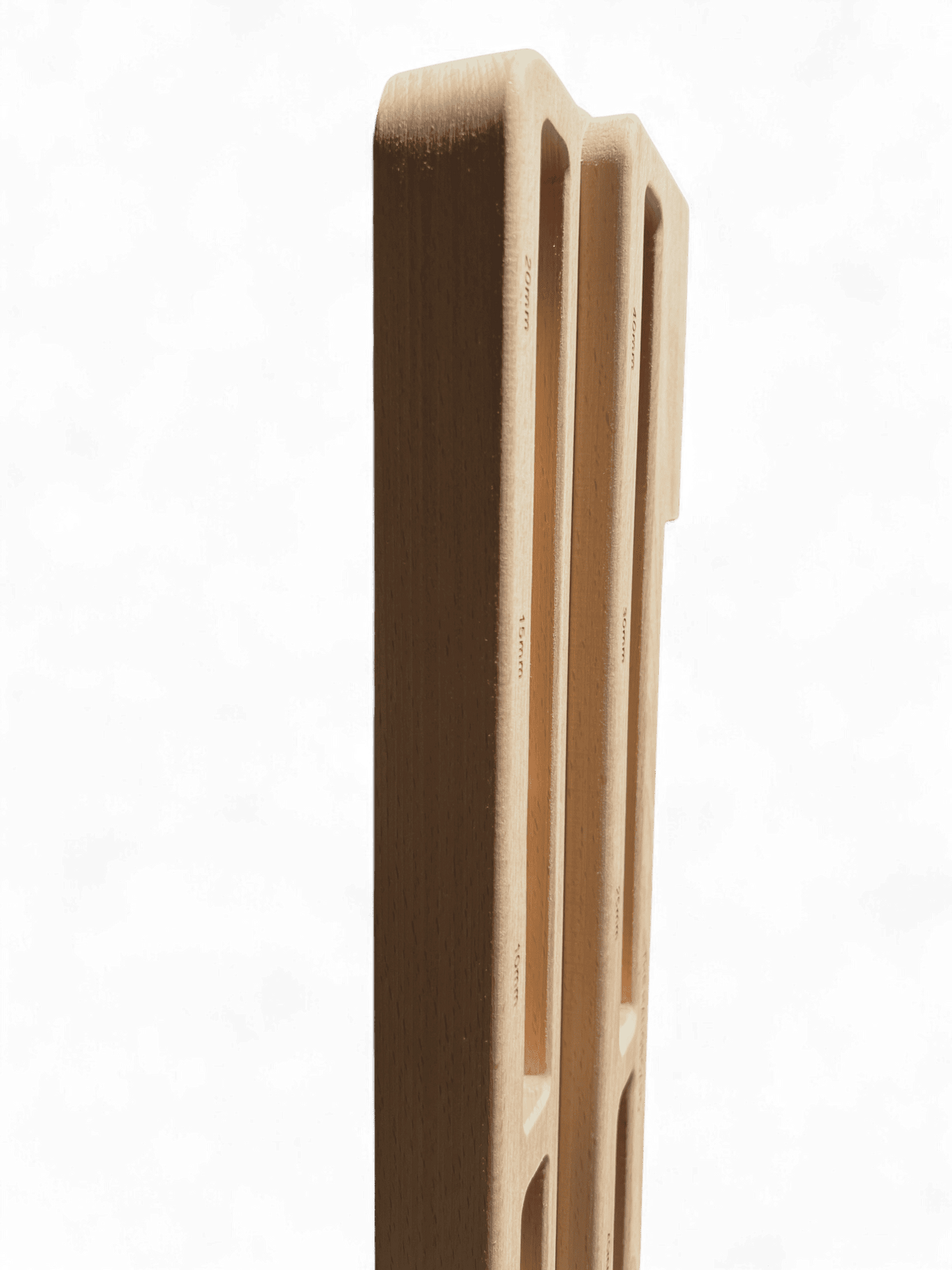In the ever-growing world of climbing, there's an increasing emphasis on training tools designed to hone specific skills. Among these tools, hangboards have become a favorite for building finger strength and flexibility. Among the various materials available, the wooden hangboard stands out for many climbers. In this article, we'll compare the benefits and disadvantages of wooden hangboards with other types, such as Polyurethane and Polyester hangboards.
What is a Hangboard?
A hangboard, or fingerboard, is a training tool mounted on a wall, featuring different shapes and sizes of grips. Climbers use it to build finger and grip strength, mimicking the conditions they'll face on real rock surfaces.
Types of Hangboards
1. Wooden Hangboard
Benefits:
- Comfortable: Wooden hangboards provide a more natural feel, which is generally considered more comfortable for prolonged training.
- Sustainable: Often made from renewable materials, they are an eco-friendly choice.
- Less Stress on Fingers: The smooth texture of wood is gentle on the skin, reducing the chances of tears and abrasions.
Disadvantages:
- Cost: Quality wooden hangboards tend to be a bit more expensive.
2. Polyurethane Hangboard
Benefits:
- Durable: Polyurethane is known for its long-lasting nature.
- Affordable: Usually a bit more budget-friendly than wooden alternatives.
- Variety: Available in different colors and designs.
Disadvantages:
- Harsh on Fingers: The texture can be more abrasive, leading to increased wear on the skin.
- Less Natural Feel: May not provide the same natural grip experience as wood.
3. Polyester Hangboard
Benefits:
- Strength: Highly robust and suitable for intense training sessions.
- Texture Variety: Can be manufactured with various textures to mimic different rock types.
Disadvantages:
- Can be Rough on Skin: Like Polyurethane, Polyester can be harder on the skin, potentially causing discomfort.
- Environmental Concerns: May not be as environmentally friendly as wooden options.
Choosing the Right Hangboard
When selecting a hangboard, consider factors such as:
- Material: Weigh the pros and cons of wooden, Polyurethane, and Polyester hangboards.
- Skill Level: Select a board that suits your climbing experience and training intensity.
- Budget: Consider the cost and what you are willing to invest in a quality training tool.

Conclusion: The Wooden Hangboard Advantage
While there are several hangboard options on the market, wooden hangboards have emerged as a preferred choice for many climbers. With their natural feel, comfort, and sustainability, they offer unique benefits that set them apart from Polyurethane and Polyester counterparts.
Whether you're a beginner aiming to develop foundational strength or an expert climber looking to refine your skills, investing in a wooden hangboard can provide a training experience tailored to your needs. By understanding the unique characteristics of each material, you can make an informed decision that aligns with your climbing goals and values.
Commonly Asked Questions:
Best wood for a hangboard
Hardwoods like beech, birch, and oak are excellent for hangboards due to their durability and smooth texture. Beech is particularly popular for its balance of hardness and gentle feel on the skin.
How to make a wooden hangboard
To make a wooden hangboard, start by selecting a quality hardwood like beech or oak. Cut the wood to your desired size, usually around 24 inches wide and 6 inches tall. Plan and mark the positions for various holds, including jugs, edges, and pockets. Use a router to carve the holds, sand the edges for a smooth finish, and apply a protective sealant. Mount the hangboard securely above a doorway using brackets or a mounting board, ensuring it's at a comfortable height for use. Remember, precision and safety are key, so take your time and consider consulting detailed tutorials or a woodworking expert for guidance.
Best wooden hangboard
While we might be just a tad biased, we firmly believe that The Hangboard from our very own brand stands unrivaled as the best wooden hangboard out there. Crafted with a climber's passion, it's not just a piece of wood; it's your next step to peak performance.

